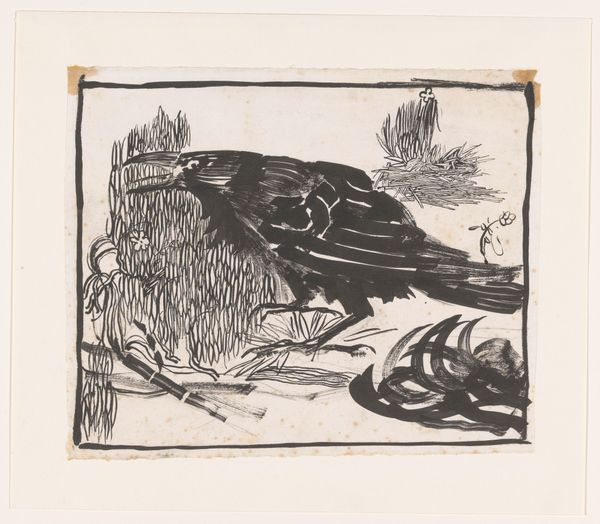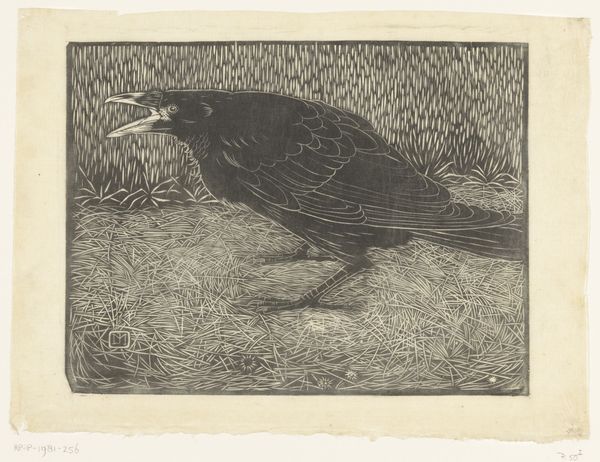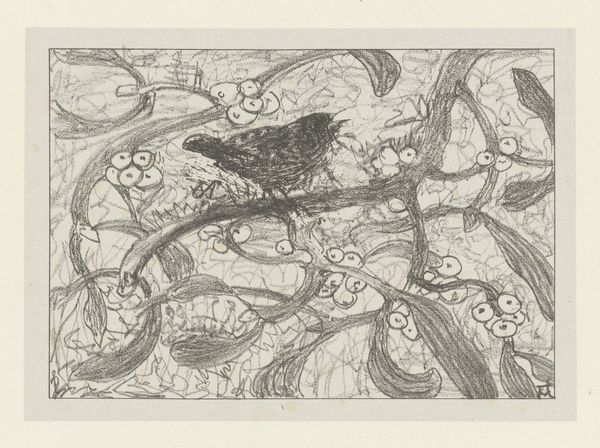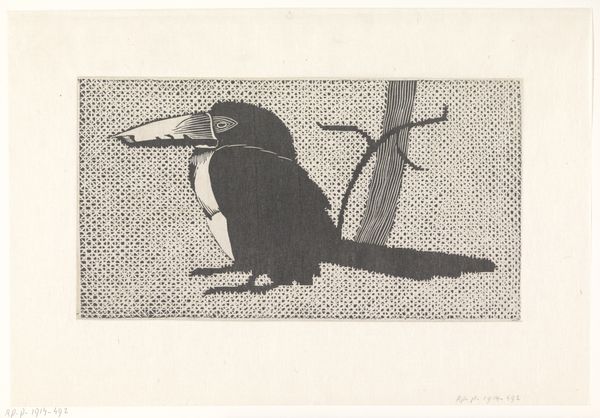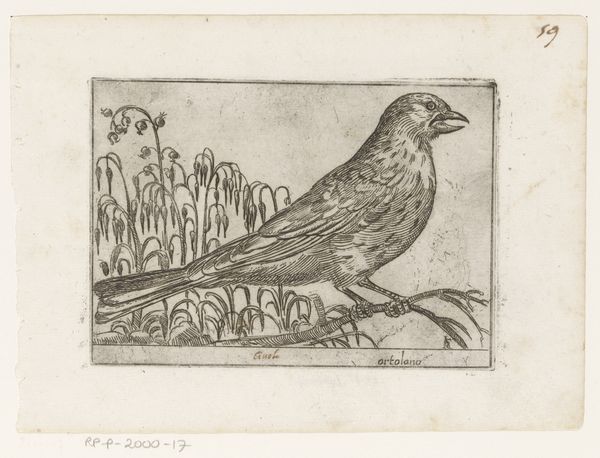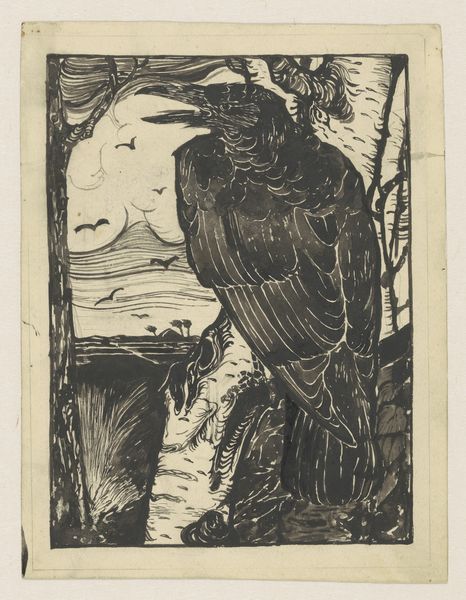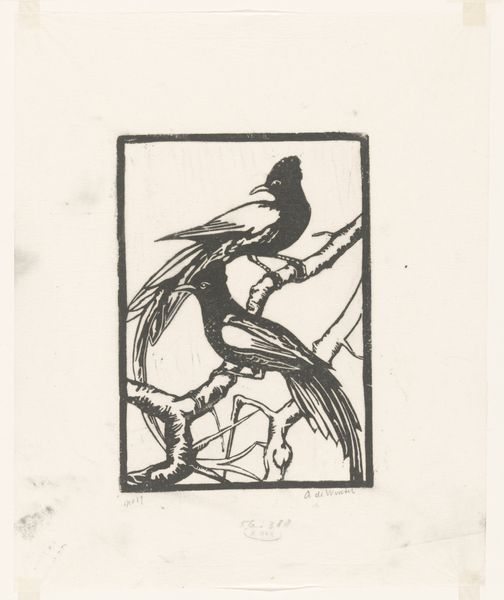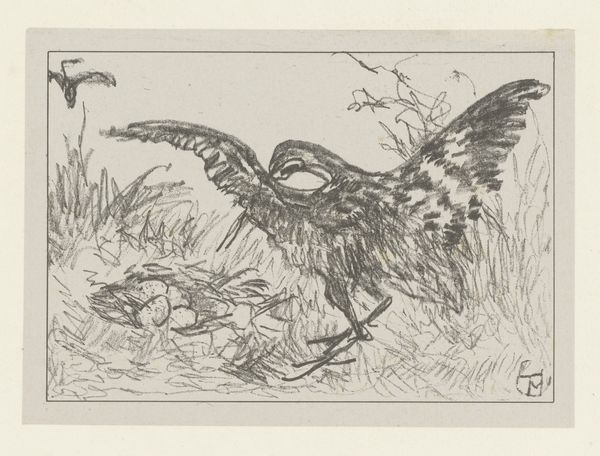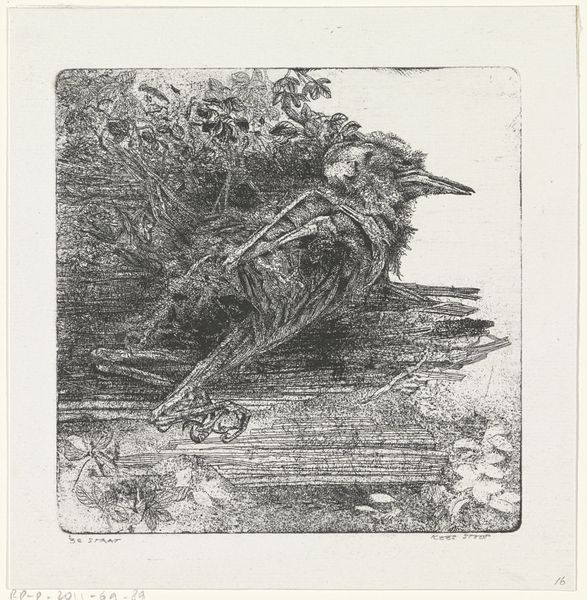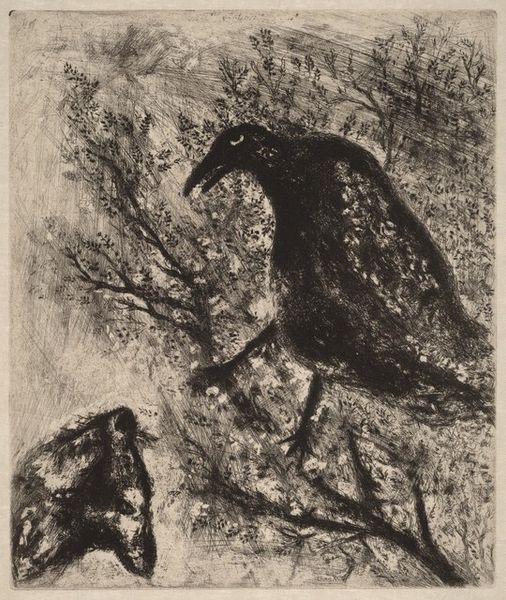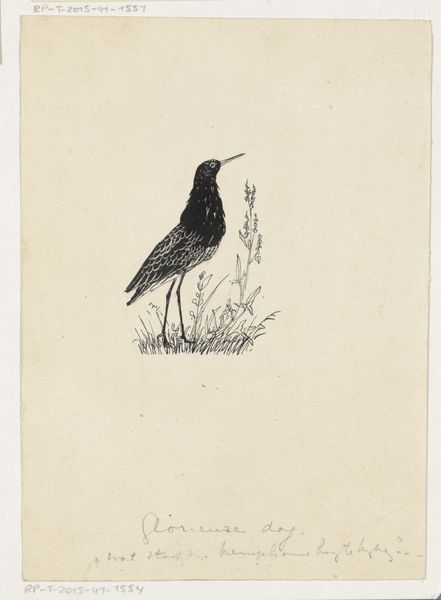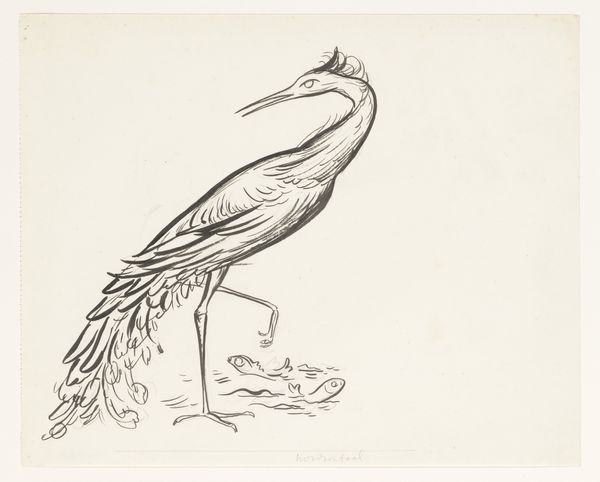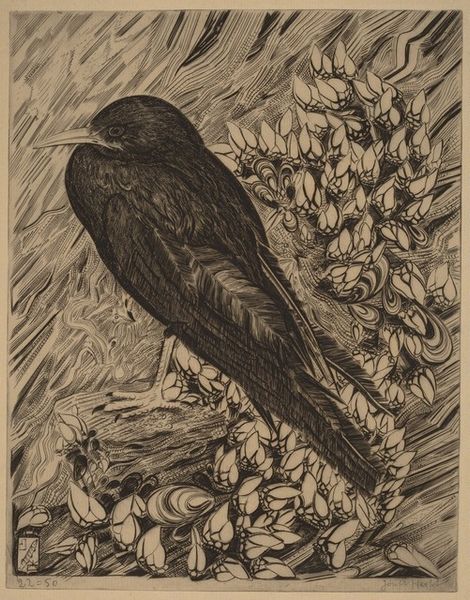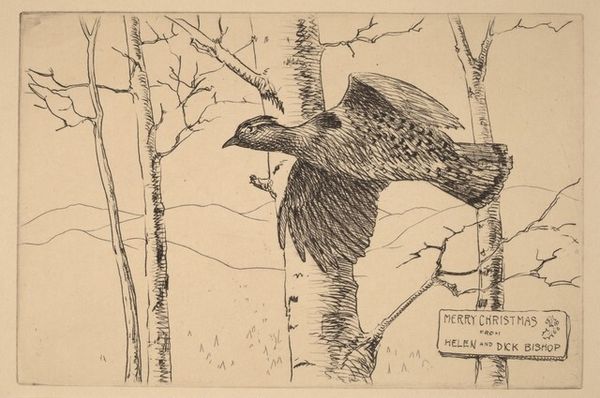
drawing, pencil
#
drawing
#
landscape
#
pencil
#
realism
Dimensions: height 150 mm, width 210 mm, height 339 mm, width 464 mm
Copyright: Rijks Museum: Open Domain
Editor: Here we have Theo van Hoytema's "Houtduif in boom", created sometime between 1874 and 1917. It's a pencil drawing, a seemingly simple sketch of a wood pigeon perched in a tree, currently held at the Rijksmuseum. The monochromatic nature gives it a rather somber, reflective mood, I think. How do you interpret this work? Curator: What immediately strikes me is the artist's engagement with line. Consider the stark contrast between the dense, almost frantic, lines defining the pigeon's plumage, versus the more sparse, suggestive lines used for the surrounding branches. What does this textural divergence suggest about Hoytema's priorities in representation? Editor: Perhaps he's emphasizing the substantial form of the bird against the almost ethereal, fleeting nature of the branches? Curator: Precisely. The composition compels us to examine the formal elements independently: the density of line, the variations in shading, the play of positive and negative space. Observe how the internal lines contribute to a certain dynamism within the static subject matter. It’s not just a representation of a pigeon, it’s a study in texture and form. Editor: I see what you mean. The drawing feels more complex now, it’s less about the bird itself and more about the artistry, the medium and his specific technique. The focus shifts to the drawing as object. Curator: Exactly! Consider how the use of simple materials—pencil on paper—achieves such depth. It urges us to appreciate the fundamentals of visual art, stripping away narrative in favour of direct engagement with form and technique. Editor: That’s a different way to approach a landscape drawing, thank you. Curator: Indeed. Analyzing these elements provides insight into Hoytema's aesthetic project, foregrounding process and composition.
Comments
No comments
Be the first to comment and join the conversation on the ultimate creative platform.
